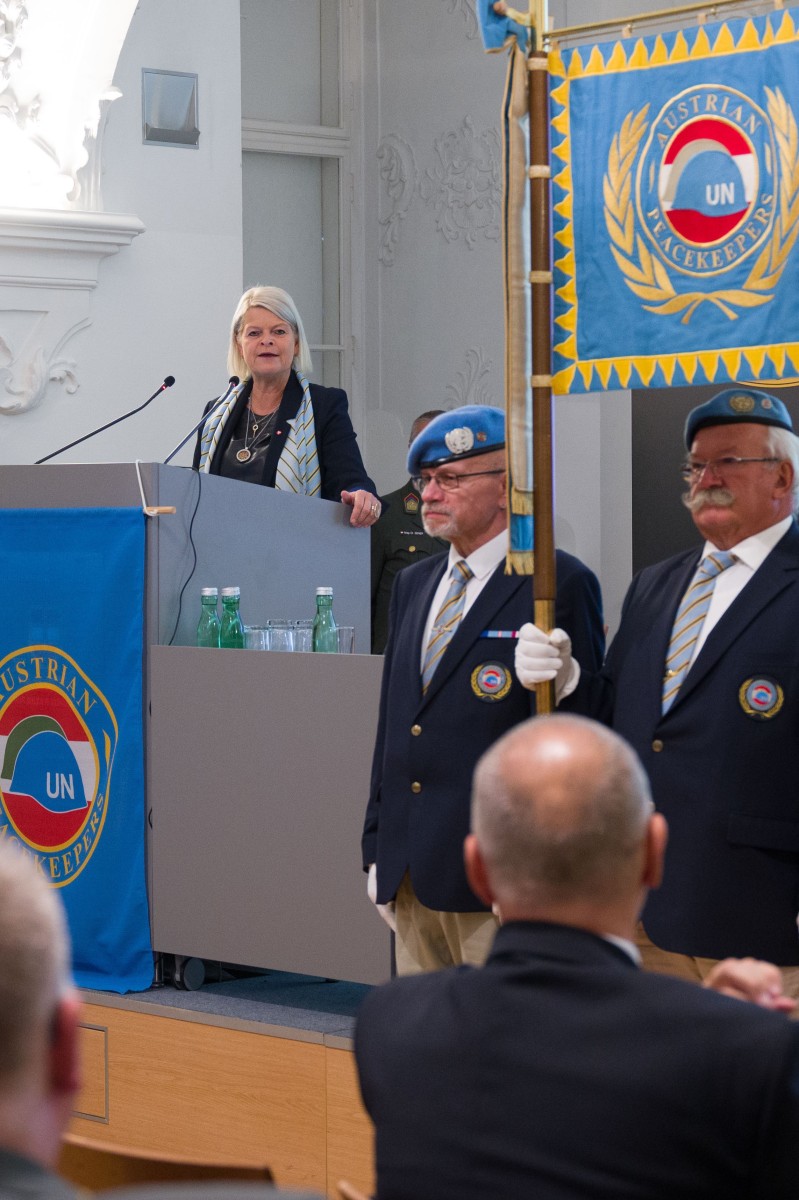Sponsored Content
Austria's Armed Forces and Defense Minister Tanner Hold Back on Possible Ukraine Mission
The question of Austrian participation in a peacekeeping mission in Ukraine is becoming the focus of Austria's military debate, but it is met with skepticism in the Ministry of Defense. Despite ongoing diplomatic efforts, including a recent meeting in Washington, Defense Minister Klaudia Tanner (ÖVP) remains cautious.
 Austrian Defense Minister Klaudia Tanner is dampening expectations of a rapid deployment of Austrian Armed Forces soldiers. / Picture: © Bundesheer/Gunther Pusch
Austrian Defense Minister Klaudia Tanner is dampening expectations of a rapid deployment of Austrian Armed Forces soldiers. / Picture: © Bundesheer/Gunther Pusch
As reported by ORF, Defense Minister Tanner has made it clear that it is currently “too early” to discuss possible scenarios. She has therefore not issued any orders to prepare for such a mission. However, a possible peacekeeping operation could affect Austria, as Russia rejects the deployment of troops from NATO…
or Log In
Fast News Search





